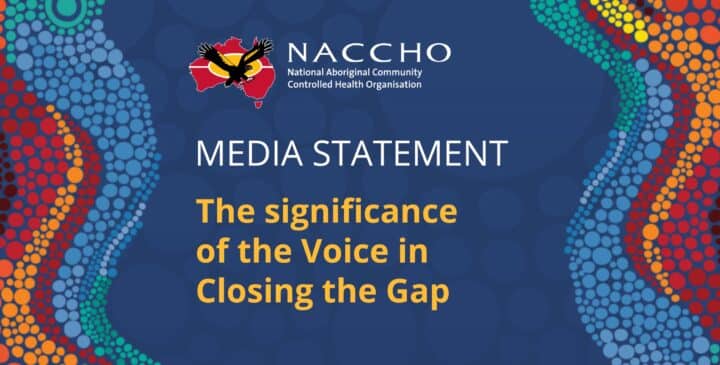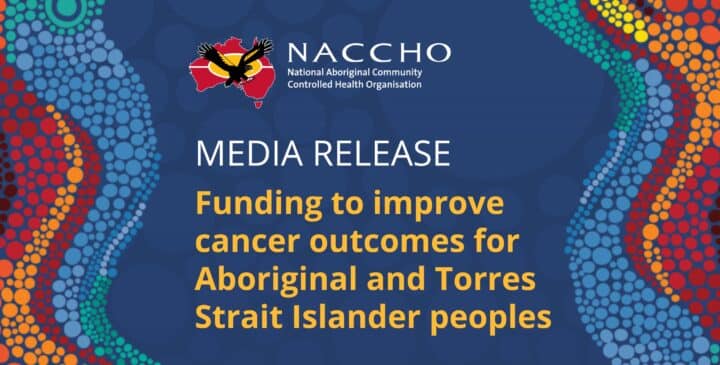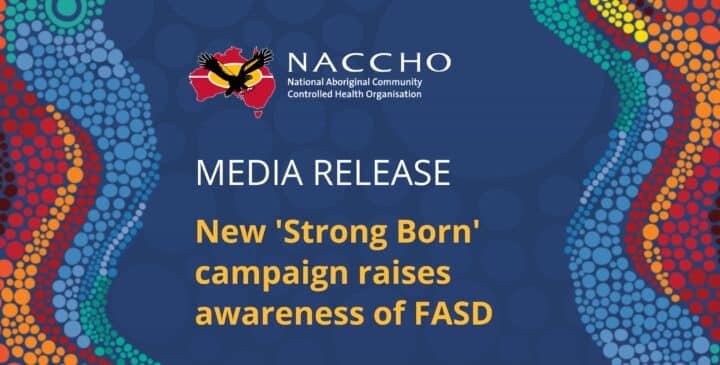

Milestone agreement to close the gap in Aboriginal health
Australia’s biggest Aboriginal health and public healthcare and hospitals bodies today signed a national agreement to work together on closing the gap in Aboriginal health.
Under the agreement the National Aboriginal Community Controlled Health Organisation (NACCHO) and the Australian Healthcare and Hospitals Association (AHHA) will work together on policies, research, and public health campaigns to address health issues in Aboriginal communities.
NACCHO represents more than 150 Aboriginal Community Controlled Health Organisations. The AHHA is Australia’s national peak body for public and not-for-profit hospitals, community and primary healthcare services, and advocates for universal, high quality and affordable healthcare to benefit the whole community.
NACCHO Chair, Matthew Cooke, said the agreement would harness the strengths of both organisations to reverse the appalling differences in the health of Aboriginal people and other Australians
“We are making inroads into closing the gap in some areas of Aboriginal health but Aboriginal people still have a life expectancy 10 years less than non-Aboriginal people,” Mr Cooke said.
“Aboriginal teenagers are five times more likely to take their own lives than other Australians. Our communities also have higher rates of chronic disease, cancer, smoking and alcohol use.
“I am looking forward to this agreement leading to real collaboration between our members, public hospital professionals and Primary Health Networks.”
AHHA Chief Executive Alison Verhoeven said the agreement would bring together the experiences of health service providers that work in the public and not-for-profit health sector across Australia and local Aboriginal controlled health organisations working in local communities.
“Through this agreement we can be a more effective united voice in speaking out together to improve the design and delivery of health services to Aboriginal people.
“This agreement strives for a whole of sector approach to better link primary, community, aged and acute care with the valuable work of the Aboriginal community controlled sector to improve the health of Aboriginal peoples.
“We will also be exploring new opportunities for collaboration through our research arm the Deeble Institute for Health Policy.
“This is an exciting new partnership that I’m confident will come up with some visionary approaches to Aboriginal health care.”

